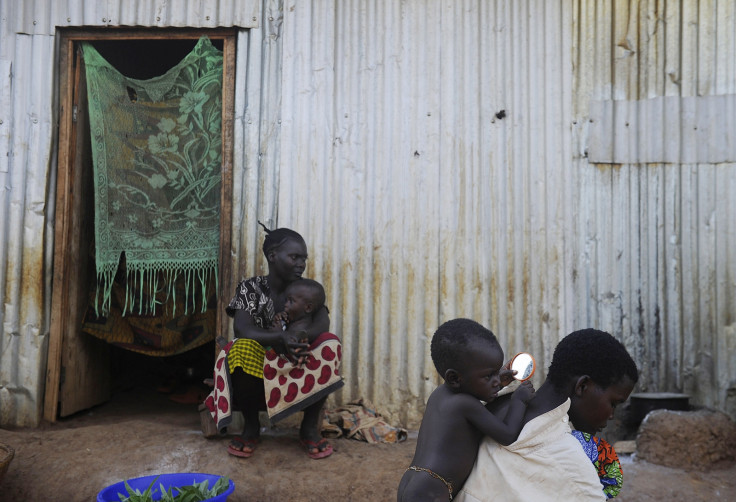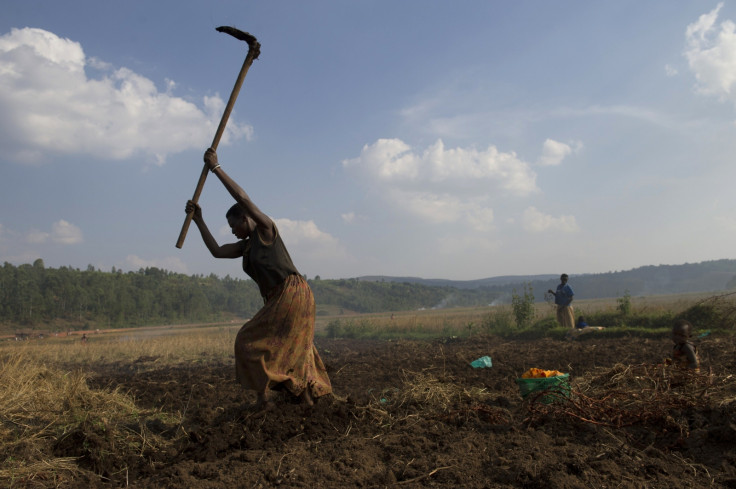Burundi: Controversy grows as government denies nation faces 'famine' despite calls for aid
3.8 million people – 40% of the population – are food insecure but the government says the situation under control.

There has been a growing controversy in Burundi, where the government has repeatedly denied activists' claims that the country is gripped by a serious food crisis.
A deteriorating economy coupled with the violent aftermath of the 2015 elections that left some 1,400 dead, caused displacement and disrupted how people manage their livelihoods has inflamed food insecurity in Burundi.
On 19 January, the Burundian government, together with the Representative of the United Nations (UN) in Burundi, officially launched a 2017 humanitarian response plan for Burundi, to help alleviate what the World Food Programme (WFP) described as an "alarming" food insecurity situation.
The November/ December 2016 WFP Food Security Monitoring System pointed to a further deterioration in the food security situation, where four in every 10 people are food insecure nationally – 3.8 million people.
This figure excludes internally displaced persons (IDPs) and refugees. Out of these, 8%, or 700,000 people, are severely food insecure. More than one million may die if they are not granted urgent assistance, according to Olucome, a non-governmental anti-corruption watchdog.
Against an increasing number of voices in Burundi rising alarm bells about the issue, the government downplayed the severity of the situation, despite food inflation climbing to 13.8% in 2016, according to the International Monetary Fund.
Political parties participating to the Inter-Burundi dialogue to end the crisis last week "drew attention to the famine" and called on the international community to help, according to a statement read by the negotiations facilitator and former president of Tanzania, Benjamin Mkapa.

The government, meanwhile, strongly rejected the use of the word "famine", instead speaking of a "deficit" – a fall – of agricultural production in 2016, due solely to climatic hazards, prolonged drought and torrential rains. According to Burundi's Ministry of Agriculture, agricultural production slumped by 40% since 2015.
President Pierre Nkurunziza's administration claimed the imbalance would be reversed thanks to good production in recent months. According to the WFP, a temporary improvement is expected during harvest season between February and April "but the situation is expected to deteriorate during the lean season", in May and June.
Gabriel Rufyiri, president of Olucome, called on the government to lower taxes it "has imposed on certain essential and sensitive products", saying a rise in the levy is only worsening the current crisis.
The Burundian Minister in Charge of Social Affairs, Martin Nivyabandi, meanwhile, said the government was staying on top of things. "We should not be overly alarmed. At the level of the government, the situation is under control," Nivyabandi said last week.
According to RFI, the Burundian government may have contacted several friendly partners, including China, which recently promised to provide an emergency aid of 5,000 tons of rice.
Earlier this month, Minister of the Interior, Pascal Barandagiye, travelled to Uganda to convince some 33,793 Burundians who fled the current crisis that they can now return to their homes in safely.
"The government wants to hide the truth by holding speeches that show that everything is going well (...) If nothing is done as soon as possible, we fear the worst," Rufyiri added.
Burundi's food crisis in numbers
At least eight of the country's 18 provinces face an extreme scarcity of food
40% of the population are food-secure, of which 700,000 people are severely food insecure
49.6% of children between 6-59 months are chronically malnourished
Global acute malnutrition (GAM) prevalence rates rose to 8.9% in November 2016 compared to 7.2% in August 2016
Even during harvest season, families spend up to two-thirds of their income on food
Source: WFP data, December 2016
© Copyright IBTimes 2025. All rights reserved.






















